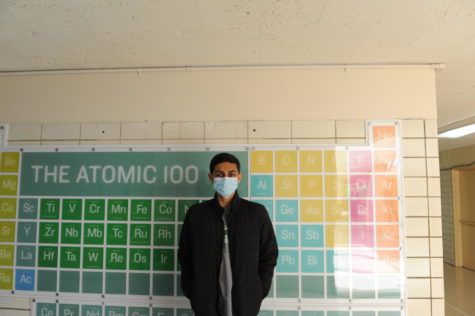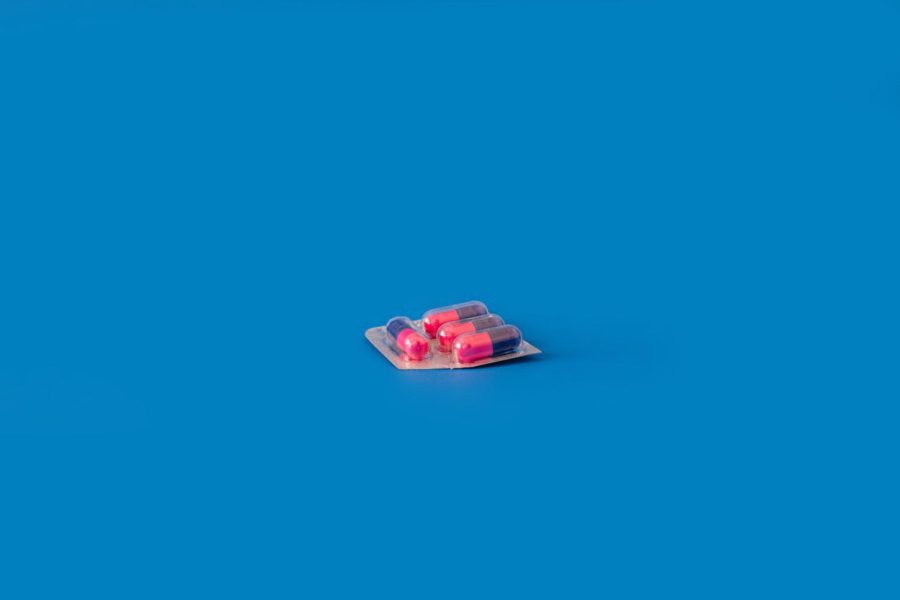An Analysis of Merck’s New COVID-19 Treatment Pill and the State of the Pharmaceutical Industry
Proposed Covid Relief Pills from both Merck and Pfizer are the next step in the fight against Covid, but their undeniable issues have reinvigorated the debate over American healthcare.
The Merck Covid relief pill will be another tool in our arsenal against our fight against COVID-19.
Merck and Co., best known for its invention of the Measles, Mumps, and Rubella (MMR) vaccine, recently announced the surprising successes of molnupiravir, its “Covid Treatment Pill.” Although the pill has not yet been approved by the Food and Drug Administration (FDA), it has already started a number of hugely important debates and controversies. Some questions are the same that are being asked about the COVID-19 vaccines: “How do we ensure international equity in the pill’s distribution? How do we make sure that third world nations aren’t left without a supply of Merck pills as they were with vaccines?” Others have been asked for decades: “How are pharmaceutical companies allowed to charge so much for life-saving medicine?”
It is important to establish the current state of the COVID-19 Treatment Pill. As the name suggests, the pill is meant to be taken by at-risk patients either when they receive a positive Covid test or report Covid symptoms. In late September 2021, Merck announced that a clinical trial on the efficacy of the pill had far outperformed expectations. The pill was shown to reduce the risk of hospitalization or death by a whopping 50 percent.
Following these results, Merck moved quickly to schedule and expedite FDA evaluations of the drug. Although approval is still at least a few weeks away, leading figures have already expressed their optimism about the drug. In a recent press conference, Dr. Anthony Fauci called the results of the trial “very impressive.” He added, “we really look forward to the implementation of this and to its effect on people who are infected.” The public has also voiced its optimism regarding the pill, as evidenced by the massive spike in Merck’s stock price, roughly up 10% since the announcement of the pill’s success in trials. Additionally, Vasu Patel ’22, president of the Bronx Science Investment Society, said that, “Merck’s announcement also brought up stocks in other industries related to tourism. The stocks of Boeing, Spirit, and Hilton all experienced huge increases.”

However, others in the scientific community have urged caution. A recent study by scientists from the University of North Carolina evaluated the possible side effects of the pill. They concluded that it may raise the risk of cancer. In its discussion, the researchers wrote that “these risks need to be carefully evaluated” and that the drug should be limited to those “who would receive the greatest benefit [the highest risk patients].”
On November 5th, 2021, just over a month after Merck, Pfizer Inc. announced the success of its own pill, Paxlovid. Paxlovid is taken along with an older drug Ritonavir that is traditionally used to treat HIV infections. Pfizer improved upon the lofty standard that Merck set, citing an eighty-nine percent decrease in hospitalization and death rate. Although Pfizer immediately began lobbying for rapid approval of the pill, Paxlovid is still a long while away from being approved.
At the same time as Dr. Fauci applauded the pill’s feats, he cautioned, “It is always better not to get infected than to get infected… The vaccine prevents you from getting infected.” Through all of its successes, the Merck pill should be viewed as only a supplementary tool, and the vaccine must remain the focus of the fight against COVID-19.
Unfortunately, vaccine availability is greatly limited. Despite support from the United States, many poorer countries remain without access to “high quality” vaccines. Less than four percent of residents of low-income countries have received at least one dose of any vaccine. Several, especially in East Asia, have rushed to make deals with Merck.
Their hurry stems from a failure to secure the same deals when the first high quality vaccines were developed. For the most part, richer countries such as the United States received the majority of their vaccines, leaving underdeveloped ones with lower quality vaccines, if any. Australia, Malaysia, Singapore, and New Zealand have all agreed on terms with Merck, and Indonesia is reportedly finalizing their contract.
Poorer countries’ desperation is symptomatic of a greater debate that has dominated recent political discourse. The United States stands at a crossroads where it must choose between public health, arguably a matter of national security, and a fundamental American ideal: the right to property. For the moment, vaccine development is stalled by the capabilities of Moderna and Pfizer and their vaccine patents. The two companies have demonstrated that they simply cannot scale to meet national, not to mention international, demand. Roughly half of the world’s population has received at least one dose of one of the vaccines.
This underperformance has caused many to call for the patents that restrict other companies from producing high-quality vaccines to be revoked by the government. The Biden administration has already announced that it is considering limited rollbacks of the patent issued to authorized COVID-19 vaccine companies.
Although Moderna has largely remained agreeable throughout this process, the CEO of Pfizer, Albert Bourla, has expressed his doubts over the usefulness of repealing the patents. In a recent open letter published on LinkedIn, he wrote that vaccine production is currently only limited by access to a number of raw materials. Opening up vaccine production to all companies “threatens to disrupt the flow of raw materials.”
Continuing its efforts to fight against the pandemic, the Biden administration has also announced that it plans to buy 1.7 million doses of the Merck Covid Pill for 1.2 billion dollars once it gets approved. A recent Harvard analysis concluded that the price is a 46 times markup from even a “generic price,” that factors in a 10 percent profit. 46 times would be considered outrageous even if the development of the pill was not largely funded by the government in the first place. Rather than developing it themselves, Merck actually purchased the pill from a researcher at Emory University, which had received 35 million dollars in federal funds.
The development of the Merck Covid pill brings questions regarding the current state of both the American pharmaceutical industry and the global one back to the forefront of society’s consciousness. These are questions that will continue to be brought back up until a solution is implemented.
The development of the Merck Covid pill brings questions regarding the current state of both the American pharmaceutical industry and the global one back to the forefront of society’s consciousness.
Anton Karp is a News Editor for 'The Science Survey.' He is most interested in the research that goes into the journalistic writing process. Anton values...

